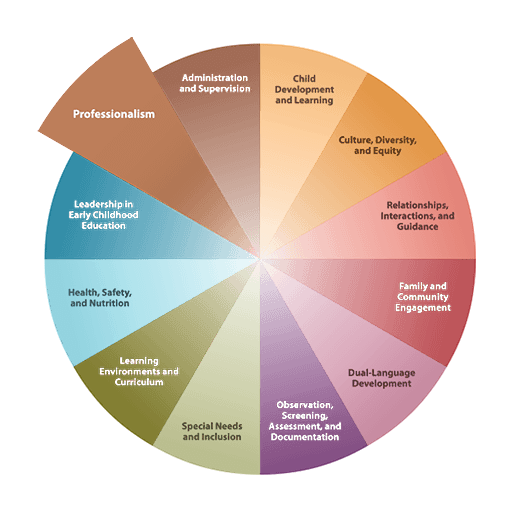All of the California early childhood educator competencies involve professionalism in some way; they describe knowledge, skills, dispositions, and an overall vision that allow early childhood educators to work effectively with children, families, colleagues, and communities and to provide high-quality early care and education services. To ensure that principles of professional and ethical practice are given equal and intentional consideration to constructs in other competency areas, they are addressed separately here. This competency area is intended to describe in greater detail ethical standards and professional guidelines, professional development and reflective practice, advocacy, and collaborative partnerships.
Download the California ECE Competencies
This document requires the Adobe Acrobat Reader. Download the plug-in.

Framing questions identify some of the major themes in this competency. They provide you with a starting point. As you explore this competency, add your own framing questions for issues you want to further examine.
Keep these dispositions in mind as you explore the Framing Questions. If you mindfully adopt these dispositions, you will realize the Desired Outcomes for Practitioners and for Children.
The CompSAT Keys to Reflection and Inquiry offer you a protocol to use in whatever setting you work as an early childhood educator. Learn how you can integrate the six Keys into your work. Select one of the Keys below to practice reflecting with questions related to the competency area of Professionalism.

Choose from one of the Keys below to view additional information related to this Competency!

Journaling is a great way to record your experiences, keep track of your questions, and make sense of your choices and their outcomes. Journaling lends itself nicely to portfolio work. It's largely a narrative format, but can be enhanced by the addition of photos, sketches, and doodles. Journaling can be done on the computer, or can it can be done using plain, blank notebooks, a pen, and colored pencils.
